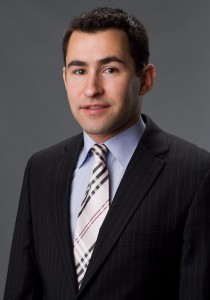Influencers Who Inspire Series – Dan Schawbel
We continue talking with some of the greatest influencers in the industry with this week’s interview with Dan Schawbel. Dan Schawbel is the founder of Millennial Branding, a Gen Y research and management consulting firm. He is the author of the #1 international best-selling book, Me 2.0: 4 Steps to Building Your Future, now in 11 languages and he has been interviewed in top publications around the world such as Inc., Fortune and TIME, among others.
How do you define personal branding?
Personal branding is the process by which you unearth what makes you special and then communicate it to the right people who would benefit from your abilities. It’s about being authentic, having a specific audience in mind, and having flexible goals. It’s about believing in yourself, marketing yourself and making a commitment to success. Remember that the product (you) comes before the marketing (selling yourself). If you aren’t extremely good at a skill or knowledgeable on a topic, all the marketing and social media tools in the world won’t save you, they will just bring you down faster.
You have interviewed so many interesting people. Who has been the most surprising?
Out of about 650 total interviews since 2007, I would say that Hulk Hogan was the biggest surprise. He was very laid back, generous, honest and respectful. He opened up about his family, was excited that I grew up as a fan and had a lot of good career advice. He was by his pool in Florida during the interview, so that could have been part of it.
What do you love about living in Boston? What do you dislike about living in Boston?
I actually just moved to Boston last year. I grew up in Newton, moved to Waltham to attend Bentley University and I now live in Seaport. I like living in the innovation area because there are a lot of young entrepreneurs (people like me) and it’s an up-and-coming scene. I dislike how there’s no parking in Boston and it can be hard to get around.
What inspired you to write your book, “Me 2.0” and what can someone expect to gain from buying/reading it?
I had eight internships, seven leadership positions in student-run organizations and had my own small business in college. It still took me about eight months to land a job at EMC after going on several interviews. After a few months at EMC, I started a blog, which eventually turned into PersonalBrandingBlog.com after I read the Tom Peters’ “Brand Called You” article in early 2007. Within six months, I launched my own magazine, online video show, and wrote articles on personal branding for online sources. Fast Company profiled me for everything I had done in six months. EMC had no idea what I was doing outside of work but saw my social media abilities and recruited me internally to be the first social media specialist. This inspired me to write Me 2.0 because I was recruited based on the personal brand I had established online, instead of applying for jobs. It was a life changing experience and I captured it in my first book.
What are your hobbies or passions outside of work?
Work is obviously a passion of mine but I like to run, travel and meet new people as much as possible.
What is your favorite travel destination and why?
I really don’t have a favorite travel destination. I like Chicago, LA, NYC and the Bahamas. I always enjoy coming back to Boston though because I’m a big fan of the Seaport and the community here.
You are certainly a young entrepreneur and have done so much so early in your career. What are you most proud of? What else do you have planned for 2012 and beyond?
I would say that I’m most proud of turning Me 2.0 into the #1 book in Japan, despite not knowing the language.
I started a company called Millennial Branding back in early 2010, which started off as a full-service personal branding agency and is now a Gen-Y marketing research and consulting firm. I also signed my second book deal with St. Martins Press after over three years of rejection. The book is going to come out in the Fall of 2013 and it’s focused on how to get ahead in your career when you already have a job.


